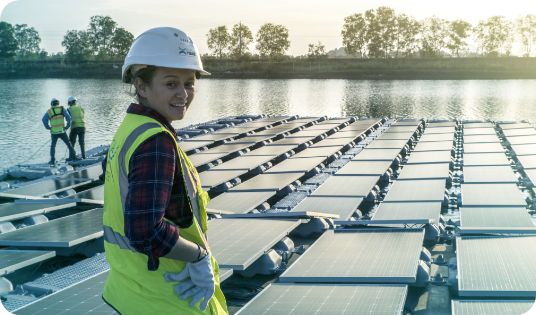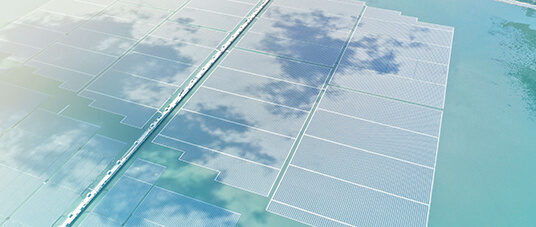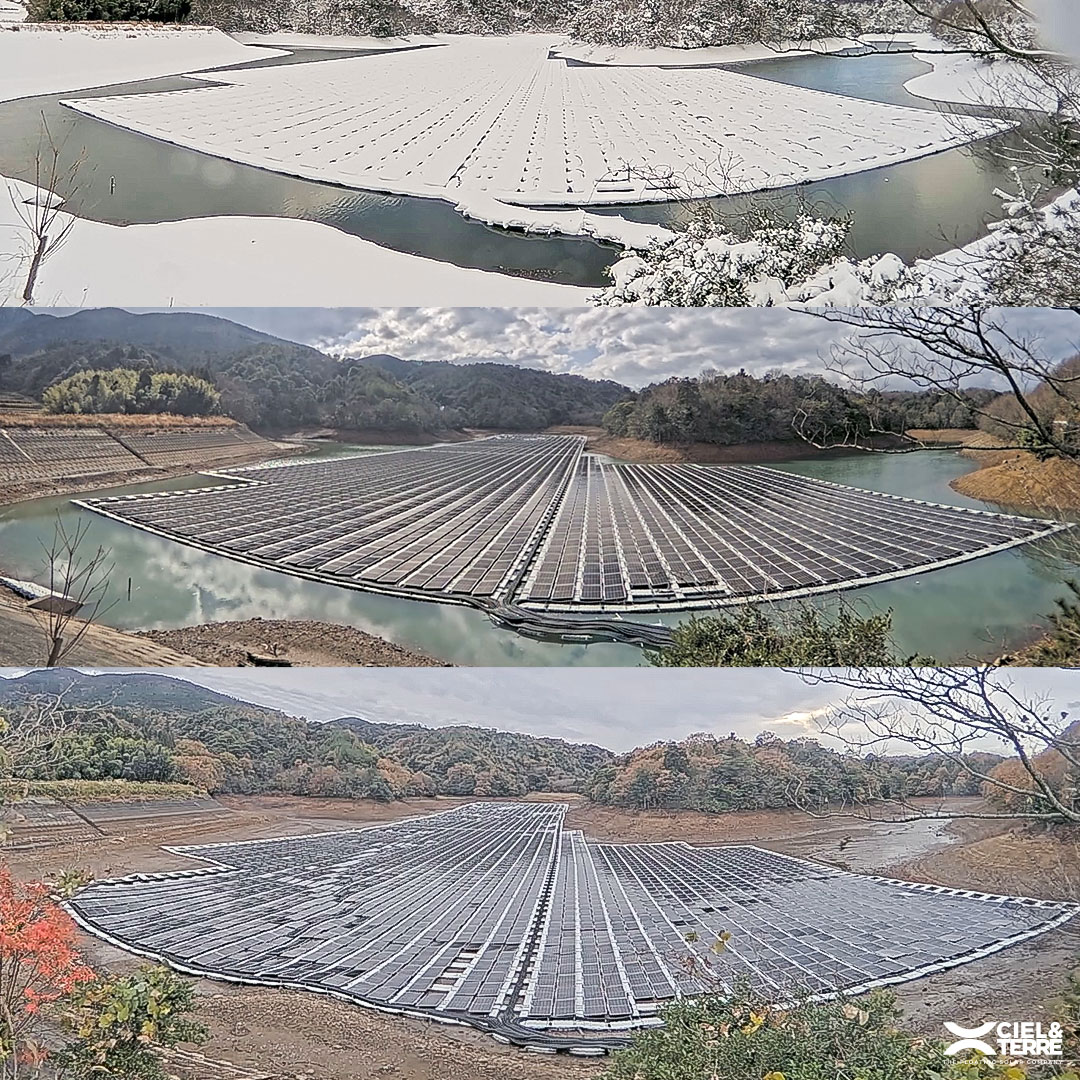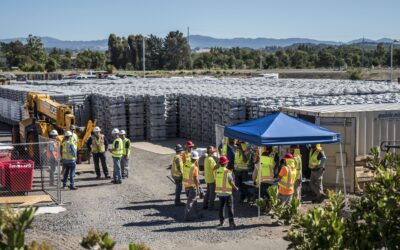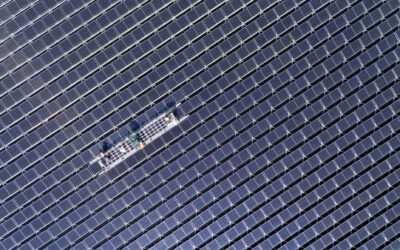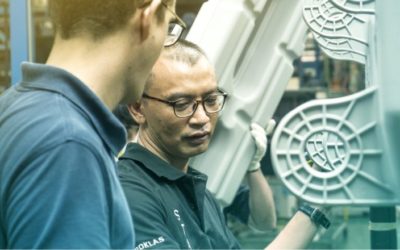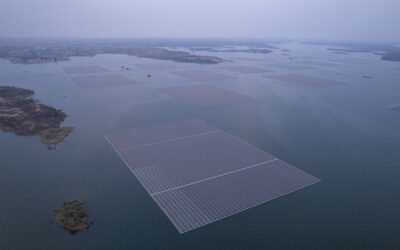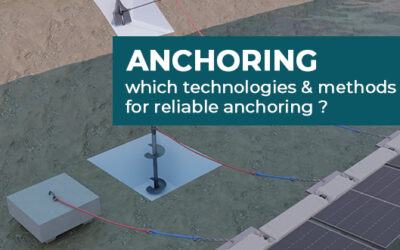Whether due to climatic events or the function of the reservoir, floating solar power plants must adapt to water level variations. Thanks to its experts, Ciel & Terre is committed to proposing the anchoring solutions best suited to your site’s characteristics. Taking the environment and all the constraints into account right from the design stage is the key to a sustainable and reliable floating solar plant.
Floating solar solutions provide flexibility to variations
Our experience in dealing with fluctuating water levels
With 306 projects installed around the world, Ciel & Terre, the floating solar power pioneer, has solid and proven experience in the design of its power plants. In fact, the design of the floating platform and its anchoring are inseparable. Indeed, these two steps complement each other to maximize the sustainability of floating solar plants. When it comes to managing water level variations, anchoring is the most important parameter to consider. That is why an R&D anchoring team is dedicated to this key design parameter. In brief, to continue developing smart services and renewable energies, the company has two teams of experts specializing in FPV anchoring:
-
- The R&D anchoring team, which develops new systems and supports local needs with smart adapted anchoring solutions, which develops new systems and support local needs with smart adapted anchoring solutions.
- The local anchoring experts focus on designing custom anchoring systems for each project. Each Ciel & Terre office around the globe has its own FPV project anchoring team, aware of the specificities and requirements of their geographical area. They focus on designing the anchoring for projects.
Thanks to our dedicated engineers’ teams, we have elaborated an efficient anchoring design process that relies on skillful teams and specific tailored tools.
+ 13 years
Dedicated to floating solar
As a sign of our expertise, our design for floating solar plants and anchoring processes have been validated by Bureau Veritas. Also, we collaborate with expert partners to complete our knowledge where it is needed.
Cross-expertise shared through Ciel & Terre Group builds a much reliable and complete experience at all stages of the floating solar project.
Providing adaptability face to site constraints
Each project has its own site constraints to consider when designing the power plant and its anchoring. Environmental loads vary and are likely to be exacerbated by climatic hazards. In fact, the design of power plants is affected by several climatic variables such as the movement and force of waves, wind and, among other things, the variation in water level and the depth of the site.
In reality, the load generated by the water level variation implies interactions with various elements of the floating PV plants:
- the floats
- their connections between them,
- the PV fixation system
- and the anchoring system.
Depending on the site constraints and data inputs, our teams can make your floating solar platform so that it can lie on the ground if necessary.
Our anchoring design is essential to guarantee that the floating solar platform can adapt to the water movements, whether they are vertical movement (water level variations) or horizontal flows (currents, water inlets) or both. The technical solution chosen is crucial. Our Hydrelio® solution is designed to be flexible and easily adaptable to the environment. The floating solar system can therefore remain on a soil with slight irregularities without impacting the structure at all.
We test our floating solutions to evaluate and improve their performance against the stress and fatigue generated by the environmental loads induced by waves, wind, current or by water level variations. This laboratory approach is completed by simulation with our design tools (OrcaFlex and Ansys) and by real-scale observations on test ponds or projects already installed. In fact, we carry out our product tests at the heart of our nearby testing and validation laboratory.
Discover our laboratory on video:
Case studies from our projects: the causes of water level variations
Changes in water levels linked to natural events
Natural events can be at the origin of these loads like tides. When projects are located near shore, they require specific anchoring considerations and adequate solutions.
That is for example the case of our project Changbin, where the water level on site varies twice a day, implying constant adaptation of the floating solar solution. Between rise and fall of water in this area, the maximum observed difference is 5m when the lowest level requires the power station to lie entirely on the ground.
A specific anchoring design for near-shore application made by Ciel & Terre
A project with an innovative anchoring solution:
H-beam system
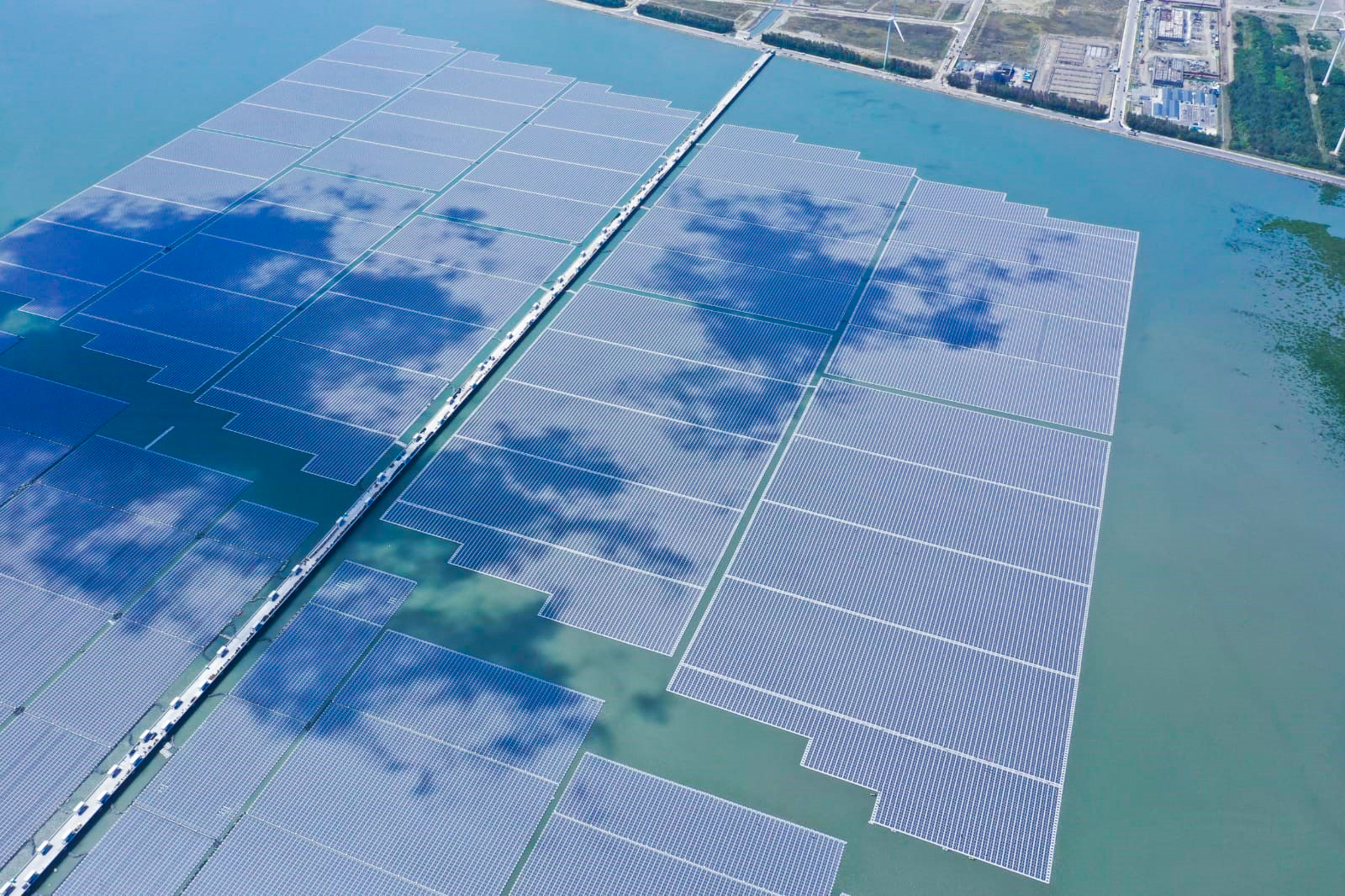
Changbin project, 192 MWp
Near shore in Taiwan
The H-Beam system is a bespoke solution designed and installed by Ciel & Terre specifically for the Changbin project. It is a customized anchoring application that withstands tidal and current variations.
Fluctuations due to the function of the reservoirs
Depending on the initial function of the basins, the water contained in them is likely to drain completely. So, a floating solar plant on this pond would lie on the bottom. Consequently, this type of pond is described as “a dry pond”. However, with a specific anchoring study carried out beforehand, the system could be compatible with complete emptying of the reservoir.
The case of water level variations for fishponds
Moreover, some ponds do not present a big shift in variation, but their water level fluctuates frequently. As a result, it requires a comprehensive anchoring study in order to design a suitable system resistant enough to repetitive up- and downwards movements.
That is for example the case of Taixi floating solar project, installed on a fishpond, for which we innovated a pillar anchoring system.
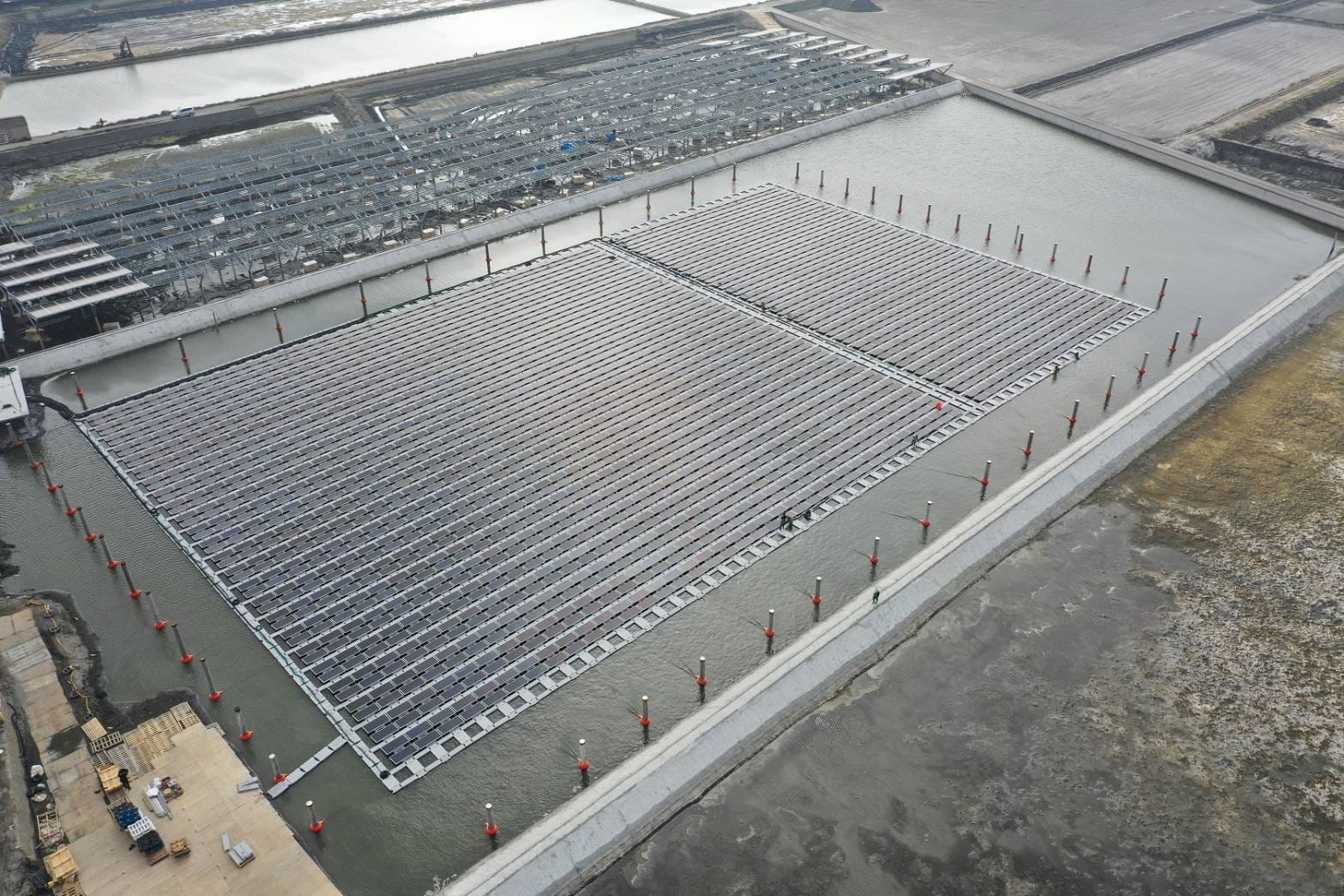
The case of water level variations for hydrodams
Hydrodams are also challenging for floating solar as water level can vary a lot. Additionally, bathymetry can be impressively irregular, causing challenging depth variations to cope with. As an example, at Alto Rabagao floating solar plant, we reached records of 30m water level variation and 50m depth anchoring.
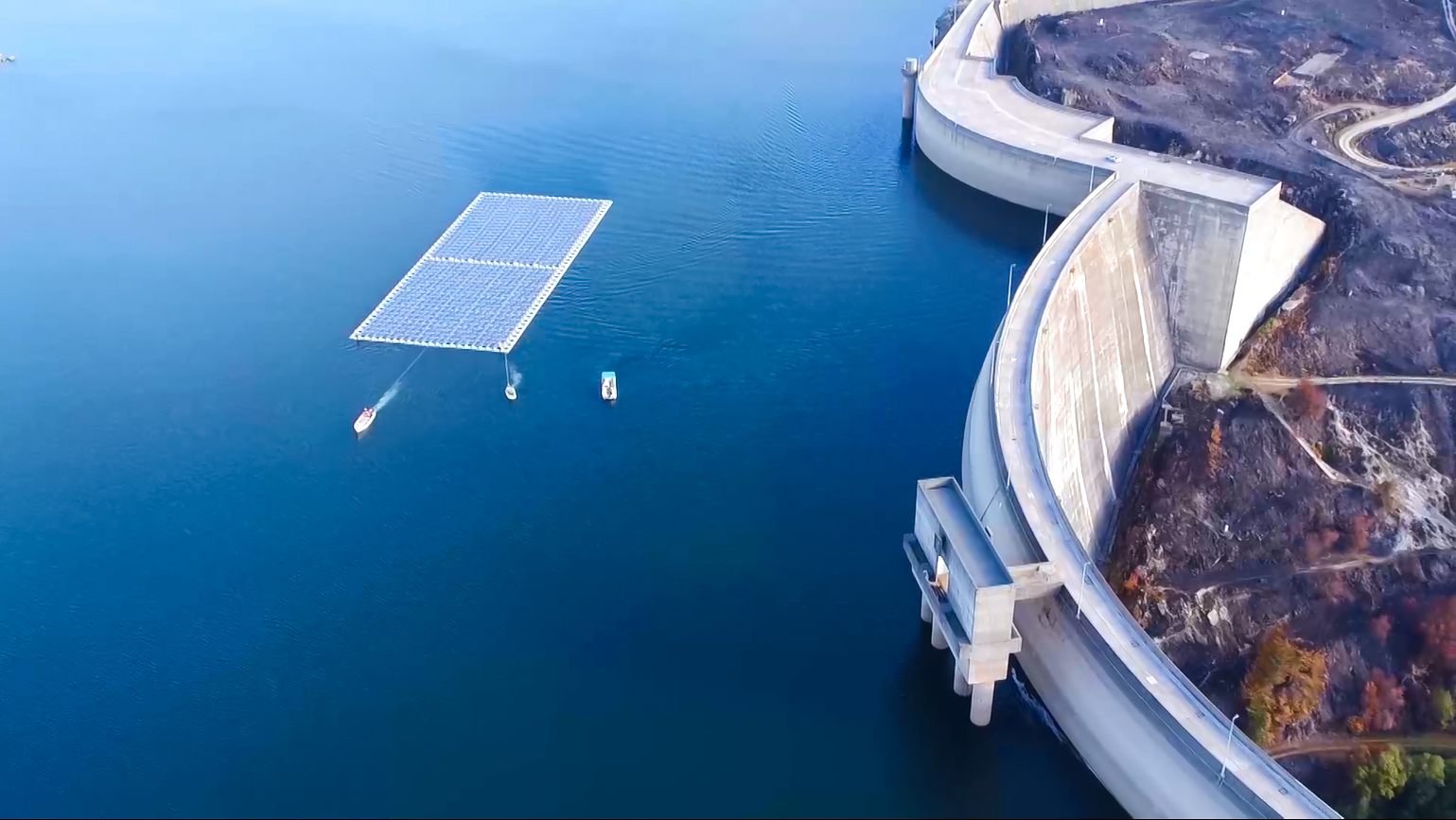
Alto Rabagao, 220 kWp
Hydrodam in Portugal
A constraint found on many other types of ponds
Hydrodams are far from being exceptions, as water level variations can be found in all types of reservoirs. Below are some references to our projects with a large shift in their water level.
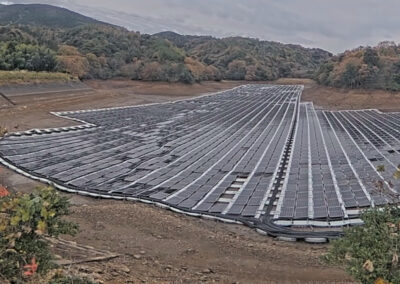
Matsuotame Ike, JAPAN – 2.7 MWp
8m water level variation
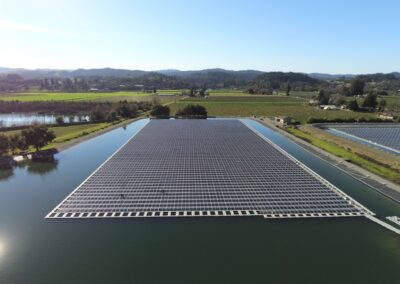
Healdsburg, USA – 4.8 MWp
10m water level variation
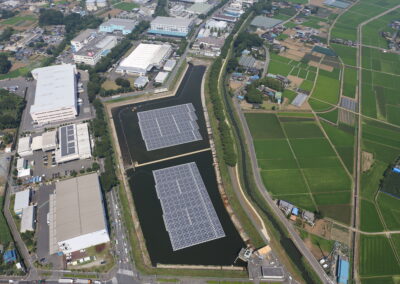
Okegawa, JAPAN- 1.2 MWp
6m water level variation
Water level variations accentuated by periods of drought
With many countries experiencing droughts during the summer months, many water ponds will continue to dry out. The same applies to water level variations for many reservoirs. As we mentioned previously, Ciel & Terre’s floating solar solutions can lie on the ground and so can withstand drought periods. Finally, Ciel & Terre’s experience in managing this type of challenge is a marker of our expertise in dealing with water level variation. Entrusting us with your floating solar power project is your guarantee of a reliable floating PV plant that will stand environmental and site constraints.
Discover other projects:
By Manon & Laura, Marketing
